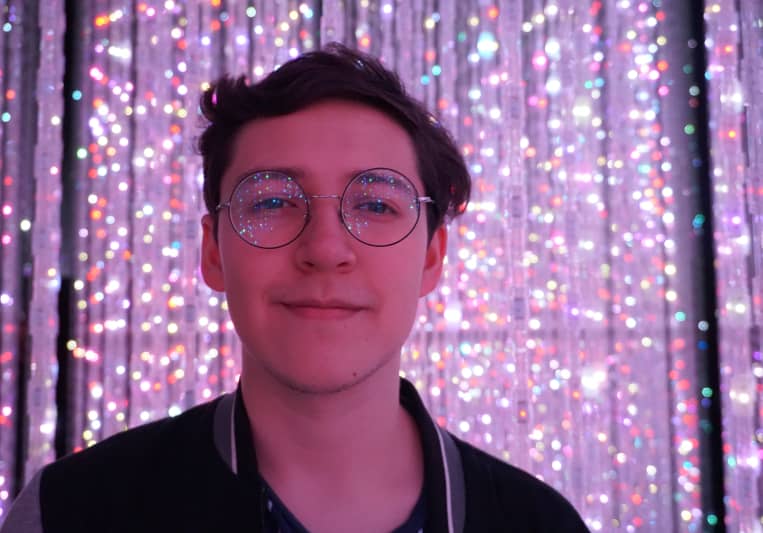
Professional mixing engineer for jazz/folk/rock acts, with several full albums by various artists published on Spotify, and experience in fusion, Japanese music, Latin American music, and Rock music.
Hi, I'm Juan. I'm a professional audio engineer (with a double major in music composition) who specializes in Rock music, Jazz Music and Japanese music. I have worked with several independent jazz, rock, folk and j-rock artists, and I have solid experience in mixing for all sorts of formats and ensembles. My main instrument is the clarinet, though I can also play the guitar and the piano.
I take pride in being communicative and having great back and forth dialogue and feedback with my clients, and I'll look forward to helping you achieve the sound you want and release tracks you love. As a musician with my own personal projects, I'll respect your creative vision above all else, but I can also provide reasonable recommendations and suggestions if you want me to.
Contact me through the green button above and let's get to work.
Languages
- English
- Japanese
- Spanish
Interview with Juan Corredor
Q: Tell us about a project you worked on you are especially proud of and why. What was your role?
A: I've been working with Paul Webb, an independent songwriter from Ontario for a while. I really like his project and his music.
Q: What are you working on at the moment?
A: The upcoming Fu-Ran album. It's going pretty well so far!
Q: Is there anyone on SoundBetter you know and would recommend to your clients?
A: I'm new to the platform, but I know Stefano Pizzaia as he was my professor during my bachelor's.
Q: Analog or digital and why?
A: I prefer digital. I feel that it's more flexible, versatile and overall powerful. Analog sounds great when you need it, but I don't think that's all the time.
Q: What's your 'promise' to your clients?
A: I'll get the sound they want and get their track sounding as good as possible.
Q: What do you like most about your job?
A: Working with talented musicians and artists.
Q: What questions do customers most commonly ask you? What's your answer?
A: Whether I'll pitch correct their vocals. I usually tell them that I'll do it if they want me to.
Q: What's the biggest misconception about what you do?
A: That somehow mastering should be more important than mixing.
Q: What questions do you ask prospective clients?
A: I ask for their references, the degree of vocal processing they want, and what they consider to be key elements in their track.
Q: What advice do you have for a customer looking to hire a provider like you?
A: Make sure you convey what you're looking for clearly.
Q: If you were on a desert island and could take just 5 pieces of gear, what would they be?
A: My ATHM50x, an SM57, an acoustic guitar, a PC and my iLok.
Q: What was your career path? How long have you been doing this?
A: I majored in Music Composition/Songwriting and Audio Engineering (I have two majors). I mostly focused on getting my own music projects going, while also making sure other projects are equally successful and satisfying for their artists.
Q: How would you describe your style?
A: Raw and bold.
Q: Which artist would you like to work with and why?
A: I hope I get to work with Suneohair someday.
Q: Can you share one music production tip?
A: Rest is just as important as working. Rest your ears and double check in different systems before sending in a mix.
Q: What type of music do you usually work on?
A: Rock music, Japanese music, and Fusion.
Q: What's your strongest skill?
A: My mixing skills.
Q: What do you bring to a song?
A: As a composer/songwriter myself, I like to think that I understand what sorts of effects or key moments a song needs, and how I can enhance it from an engineering perspective.
Q: What's your typical work process?
A: First thing I make sure my client and I are in the same page. Then I organize the audio files, and start by mixing the drums/beat, then I go for the vocals, ensuring a good balance and level, and then I mix in the rest of the band. Having good drums and vocals ensures the track will stay consistent and solid.
Q: Tell us about your studio setup.
A: I work in the box, which means my main investments are in the best plug-ins out there. Though I get the chance to occasionally mix on analog gear in which case I use an SSL Duality console, and PMC studio monitors.
Q: What other musicians or music production professionals inspire you?
A: I'm especially inspired by Suneohair's music, as well as Eve, Fountains of Wayne and Radiohead
Q: Describe the most common type of work you do for your clients.
A: Main mixing and vocal pitch correction experience. I frequently do mastering for my clients as well.

I was the Mixing Engineer, Producer in this production
- Mastering EngineerAverage price - $70 per song
- Vocal TuningAverage price - $40 per track
- Songwriter - MusicAverage price - $70 per song
- Full instrumental productionAverage price - $400 per song
I generally take about three to five days to complete a mix. Full productions take about a month.
- FabFilter
- Waves Gold
- Melodyne Studio
- ATHM50x



